Farming is not just a job like any other job. It’s unique and brings with it a unique set of opportunities and challenges.
Most farmers are optimists, seeing the opportunities in every challenge rather than the challenge in every opportunity.
Farmers are like the situation that Bishop Desmond Tutu referred to in South Africa when he was asked about apartheid, in the really dark days ... South Africans were "prisoners of hope", and I think as farmers we’re also prisoners of hope.
Social licence
So what is the role of farmers and what is the social licence? Well, firstly it’s about producing food, fuel and fibre and it also about managing the environment and acting as custodians of the countryside.
But it’s much more than this. It’s about communities, churches and schools. It’s about jobs, businesses, employment and infrastructure.
And it’s a job that is often misunderstood and misrepresented in wider society, with many regarding farmers as whingers and whiners, living for subsidies, bleeding the State and polluting the planet, completely missing the point about social goods, public goods and what they deliver to society on a daily basis.
So it’s more important than ever that the agri-food industry keeps ahead of the critics and detractors and that we demonstrate the importance and value of this industry. Especially in Ireland.
But we have challenges – environment, animal welfare, GMO and human nutrition.
The environment
What people forget is that we have produced food historically every time global population increased to meet demand. What they also forget is that if we look at the figures from 100 years ago, we are producing meat and dairy and other agricultural commodities more efficiently than we’ve ever done before, yet no one talks about it.
We need to get the facts right, not this idea that agriculture produces 60% of the emissions. The reality is that agriculture represents a significantly smaller proportion of the emissions and is working tirelessly to reduce emissions year on year.
Fall in emissions
In fact, what’s often not reported is that there has actually been a 27.8% fall in emissions from agriculture between 1990 and 2016.
Many of these gains are as a result of work such as that discussed here today and under the direction of organisations like ICBF, highlighted in the top-quality poster exhibits.
Agriculture is not as much the problem, but rather is part of the solution
Some of the work that was criticised in the early years as being much too unreliable to drive change now clearly demonstrates if you focus on breeding, genetics, genotyping and technical efficiencies you can significantly reduce the agricultural footprint and support the idea that agriculture is not as much the problem, but rather that agriculture is part of the solution.
These reductions and targets are achievable while still letting farmers farm.
However, agriculture is about balance. It’s about farming activities that both contribute to and sequester greenhouse gases.
Agriculture must be about:
Increased efficiencies in meat and dairy by improved fertility and performance.Better performance can facilitate better quality without increased numbers that reduces emissions from storage of manure and slurry.Efficient use of fertiliser by reduction in quantity, more information and training about its use and application, about soil condition and remember, we have already achieved a 42% reduction in emissions from soil from 1990.And finally, a reduction in ploughing and adoption of alternative management practices improving and developing carbon sequestration.All in all, it should be a good news story on the environment.
Animal welfare
We farm animals to some of the highest standards in the world and to very high ethical standards.
We currently ensure that our animals are kept in extremely high standards adhering to the five freedoms ensuring all have shelter, access to food, water and sanitation.
This is in a world where 821.6m people (one in nine) go hungry every day, where two billion people are food-insecure; a world where 150 million people are homeless with 1.5 billion lacking adequate housing, and a world where 2.2 billion people lack access to clean water.
In other words, we have a farming system that cares for livestock better than the care or comforts enjoyed by huge chunks of the human race.
We have a farming system that cares for livestock better than the care or comforts enjoyed by huge chunks of the human race
In addition, we are being challenged continually by animal rights groups and anti-meat, anti-livestock farming groups with an agenda.
I’m sure everyone is under the impression that this is a significant proportion of the population and a rapidly growing number, but it’s not.
Trends
A Mintel report in the UK into food trends demonstrates that food manufacturers are trying to capitalise on the changing trends.
The proportion of new vegan food products has risen from 17% in 2018 to 23% in 2019, but this doesn’t reflect the market, where 88% of the population eats red meat and poultry.
The reality is that some people are definitely cutting down, with one-quarter citing environmental reasons, one-third citing health reasons, and one-third that want to save money.
But the truth that some people appear to forget that 1% of the population is vegan.
Majority wants meat
So the vast majority still want meat in their diet and will still need livestock farmers.
Furthermore, we are also told that lab-grown/in-vitro meat will be the future. A very interesting situation where the suggestion is that artificial/manufactured/processed product is better than a wholly natural product like meat would be considered.
Research now indicates that this is a process requiring heat and energy, water, chemicals, sugars, amino acids and the list goes on. It’s a process that’s definitely not zero-carbon.
Farming
In fact, one of my concerns is that some of the current media reporting is actually weighted against farming resulting in a general consensus that many people are changing eating habits and that many people are anti-farming, something we know not to be true.
It’s something that’s flagged up by certain papers receiving in excess of £700,000/yr from an anti-farming lobby group and a well know TV channel investing a "meatless farm". Hardly impartial reporting.
What about GMO?
In my opinion it’s like medicine. The right medicine for the right condition at the right time. It can present the opportunity for us to produce food with less water, less inputs more efficiently.
However, at the moment the European consumers have said no and that’s something we as farmers must respect. We must receive the credit for this position that arguably leaves us at a disadvantage to others in the global marketplace.
Human nutrition
We supply some of the highest-quality food in the world, to a world where more people die today from obesity than die from starvation.
If we continue to supply this food and people continue to act irresponsibly with their eating habits, surely we need to ask questions about where responsibility lies. However, there is opportunity, and the fightback has begun.
I refer to Professor Alice Stanton (RCSI) who made a presentation earlier this month to the Oxford Farming Conference. I would recommend everyone go and look at this presentation.
Here’s what she says – this is all validated and substantiated. We’ve got it wrong. We’re counting the value of food incorrectly. Rather than focusing on calories, we really should be focusing on the nutrient density of food.
Value of food
When we do this and establish the true value of food for protein, carbohydrate, energy density, lo and behold, the best performers are actually meat and dairy.
Furthermore, they also perform best when we consider climate change and the environment performing much better than most fruit and vegetables.
In addition to this, when Prof Stanton looked at some of the plant-based burgers, she found that they had three times the salt than a conventional burger – a figure exacerbated by the fact that she tells us that salt is over 100 times more likely to kill you than meat.
Struggle
And another thing. Prof Stanton also demonstrated that you will struggle with a vegan or vegetarian diet unless you can manage and understand your nutritional intake. It is risky plan to take meat from your diet completely.
If you want to seriously look at weight and obesity, it’s arguably more about the level of processing food goes through. Unprocessed natural food is best, by far. We can clearly demonstrate that if you remove cheaper processed food and replace it with more natural wholesome food (including meat and dairy) and less processing, you will be healthier and lose weight.
So what does this all mean? If we want social licence and we want support, we need to:
Cut through the myths and lies.Promote our industry better.Be the best in class.Maximise efficient use of resources.Be proud of our industry and tell people about it.Engage with consumers and listen to what they want.Be part of an industry that’s not supply-led but is demand driven.If we are serious about social licence and gaining the ongoing support and approval of the community and stakeholders and broader social acceptance of farming and farmers, we must remind people, as the video explained, that on the eighth day God definitely made the farmer.
Read more
Mohamed Salah holds the answer to changing attitudes to Irish farming
Bridging the gap between primary food producers and consumers
Farming is not just a job like any other job. It’s unique and brings with it a unique set of opportunities and challenges.
Most farmers are optimists, seeing the opportunities in every challenge rather than the challenge in every opportunity.
Farmers are like the situation that Bishop Desmond Tutu referred to in South Africa when he was asked about apartheid, in the really dark days ... South Africans were "prisoners of hope", and I think as farmers we’re also prisoners of hope.
Social licence
So what is the role of farmers and what is the social licence? Well, firstly it’s about producing food, fuel and fibre and it also about managing the environment and acting as custodians of the countryside.
But it’s much more than this. It’s about communities, churches and schools. It’s about jobs, businesses, employment and infrastructure.
And it’s a job that is often misunderstood and misrepresented in wider society, with many regarding farmers as whingers and whiners, living for subsidies, bleeding the State and polluting the planet, completely missing the point about social goods, public goods and what they deliver to society on a daily basis.
So it’s more important than ever that the agri-food industry keeps ahead of the critics and detractors and that we demonstrate the importance and value of this industry. Especially in Ireland.
But we have challenges – environment, animal welfare, GMO and human nutrition.
The environment
What people forget is that we have produced food historically every time global population increased to meet demand. What they also forget is that if we look at the figures from 100 years ago, we are producing meat and dairy and other agricultural commodities more efficiently than we’ve ever done before, yet no one talks about it.
We need to get the facts right, not this idea that agriculture produces 60% of the emissions. The reality is that agriculture represents a significantly smaller proportion of the emissions and is working tirelessly to reduce emissions year on year.
Fall in emissions
In fact, what’s often not reported is that there has actually been a 27.8% fall in emissions from agriculture between 1990 and 2016.
Many of these gains are as a result of work such as that discussed here today and under the direction of organisations like ICBF, highlighted in the top-quality poster exhibits.
Agriculture is not as much the problem, but rather is part of the solution
Some of the work that was criticised in the early years as being much too unreliable to drive change now clearly demonstrates if you focus on breeding, genetics, genotyping and technical efficiencies you can significantly reduce the agricultural footprint and support the idea that agriculture is not as much the problem, but rather that agriculture is part of the solution.
These reductions and targets are achievable while still letting farmers farm.
However, agriculture is about balance. It’s about farming activities that both contribute to and sequester greenhouse gases.
Agriculture must be about:
Increased efficiencies in meat and dairy by improved fertility and performance.Better performance can facilitate better quality without increased numbers that reduces emissions from storage of manure and slurry.Efficient use of fertiliser by reduction in quantity, more information and training about its use and application, about soil condition and remember, we have already achieved a 42% reduction in emissions from soil from 1990.And finally, a reduction in ploughing and adoption of alternative management practices improving and developing carbon sequestration.All in all, it should be a good news story on the environment.
Animal welfare
We farm animals to some of the highest standards in the world and to very high ethical standards.
We currently ensure that our animals are kept in extremely high standards adhering to the five freedoms ensuring all have shelter, access to food, water and sanitation.
This is in a world where 821.6m people (one in nine) go hungry every day, where two billion people are food-insecure; a world where 150 million people are homeless with 1.5 billion lacking adequate housing, and a world where 2.2 billion people lack access to clean water.
In other words, we have a farming system that cares for livestock better than the care or comforts enjoyed by huge chunks of the human race.
We have a farming system that cares for livestock better than the care or comforts enjoyed by huge chunks of the human race
In addition, we are being challenged continually by animal rights groups and anti-meat, anti-livestock farming groups with an agenda.
I’m sure everyone is under the impression that this is a significant proportion of the population and a rapidly growing number, but it’s not.
Trends
A Mintel report in the UK into food trends demonstrates that food manufacturers are trying to capitalise on the changing trends.
The proportion of new vegan food products has risen from 17% in 2018 to 23% in 2019, but this doesn’t reflect the market, where 88% of the population eats red meat and poultry.
The reality is that some people are definitely cutting down, with one-quarter citing environmental reasons, one-third citing health reasons, and one-third that want to save money.
But the truth that some people appear to forget that 1% of the population is vegan.
Majority wants meat
So the vast majority still want meat in their diet and will still need livestock farmers.
Furthermore, we are also told that lab-grown/in-vitro meat will be the future. A very interesting situation where the suggestion is that artificial/manufactured/processed product is better than a wholly natural product like meat would be considered.
Research now indicates that this is a process requiring heat and energy, water, chemicals, sugars, amino acids and the list goes on. It’s a process that’s definitely not zero-carbon.
Farming
In fact, one of my concerns is that some of the current media reporting is actually weighted against farming resulting in a general consensus that many people are changing eating habits and that many people are anti-farming, something we know not to be true.
It’s something that’s flagged up by certain papers receiving in excess of £700,000/yr from an anti-farming lobby group and a well know TV channel investing a "meatless farm". Hardly impartial reporting.
What about GMO?
In my opinion it’s like medicine. The right medicine for the right condition at the right time. It can present the opportunity for us to produce food with less water, less inputs more efficiently.
However, at the moment the European consumers have said no and that’s something we as farmers must respect. We must receive the credit for this position that arguably leaves us at a disadvantage to others in the global marketplace.
Human nutrition
We supply some of the highest-quality food in the world, to a world where more people die today from obesity than die from starvation.
If we continue to supply this food and people continue to act irresponsibly with their eating habits, surely we need to ask questions about where responsibility lies. However, there is opportunity, and the fightback has begun.
I refer to Professor Alice Stanton (RCSI) who made a presentation earlier this month to the Oxford Farming Conference. I would recommend everyone go and look at this presentation.
Here’s what she says – this is all validated and substantiated. We’ve got it wrong. We’re counting the value of food incorrectly. Rather than focusing on calories, we really should be focusing on the nutrient density of food.
Value of food
When we do this and establish the true value of food for protein, carbohydrate, energy density, lo and behold, the best performers are actually meat and dairy.
Furthermore, they also perform best when we consider climate change and the environment performing much better than most fruit and vegetables.
In addition to this, when Prof Stanton looked at some of the plant-based burgers, she found that they had three times the salt than a conventional burger – a figure exacerbated by the fact that she tells us that salt is over 100 times more likely to kill you than meat.
Struggle
And another thing. Prof Stanton also demonstrated that you will struggle with a vegan or vegetarian diet unless you can manage and understand your nutritional intake. It is risky plan to take meat from your diet completely.
If you want to seriously look at weight and obesity, it’s arguably more about the level of processing food goes through. Unprocessed natural food is best, by far. We can clearly demonstrate that if you remove cheaper processed food and replace it with more natural wholesome food (including meat and dairy) and less processing, you will be healthier and lose weight.
So what does this all mean? If we want social licence and we want support, we need to:
Cut through the myths and lies.Promote our industry better.Be the best in class.Maximise efficient use of resources.Be proud of our industry and tell people about it.Engage with consumers and listen to what they want.Be part of an industry that’s not supply-led but is demand driven.If we are serious about social licence and gaining the ongoing support and approval of the community and stakeholders and broader social acceptance of farming and farmers, we must remind people, as the video explained, that on the eighth day God definitely made the farmer.
Read more
Mohamed Salah holds the answer to changing attitudes to Irish farming
Bridging the gap between primary food producers and consumers




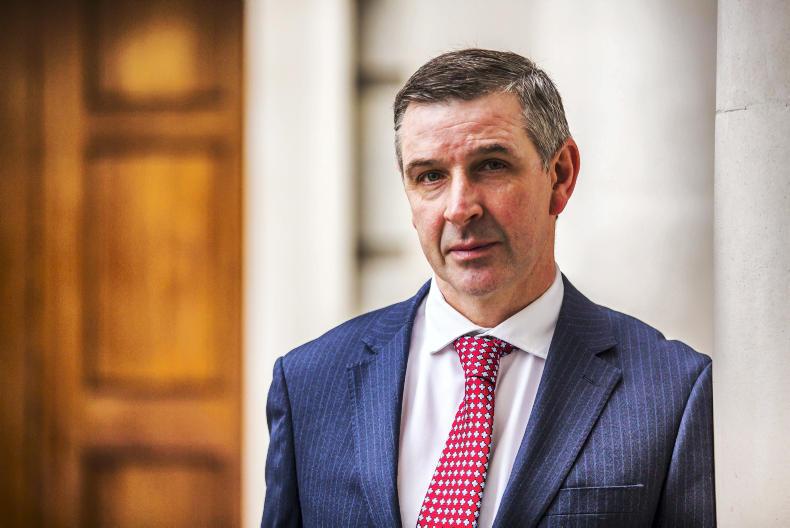
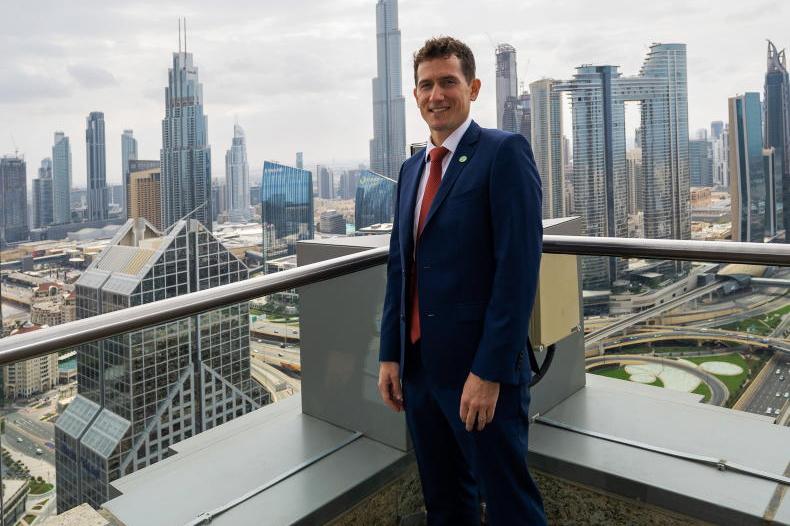
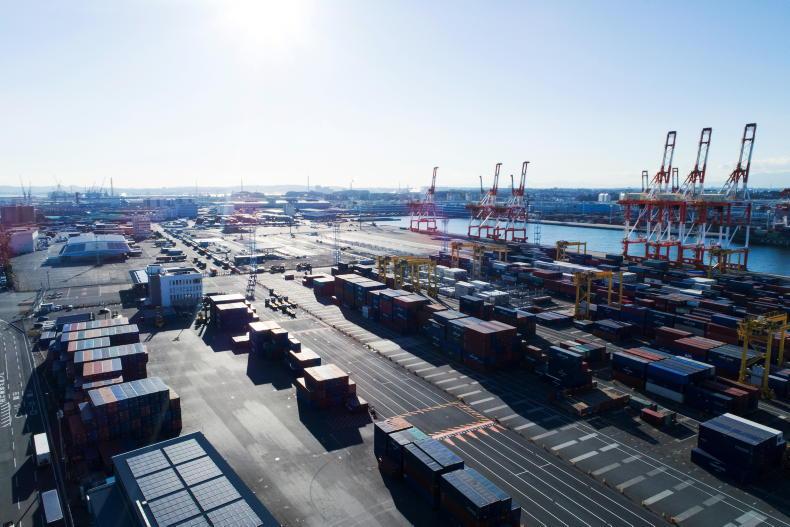
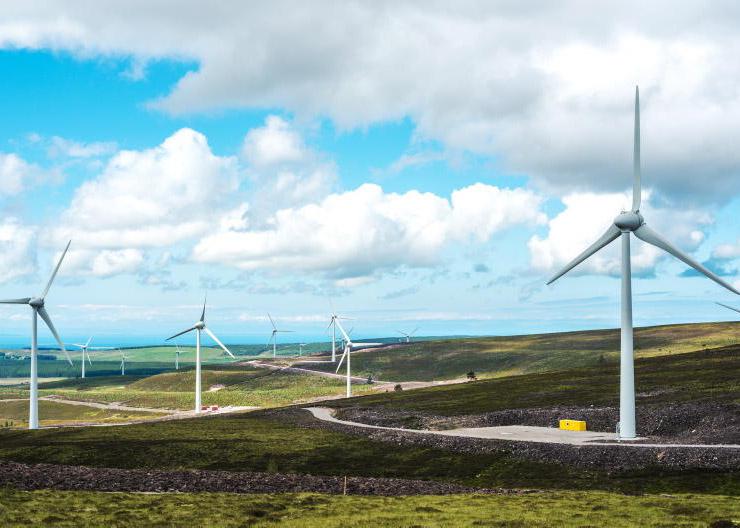
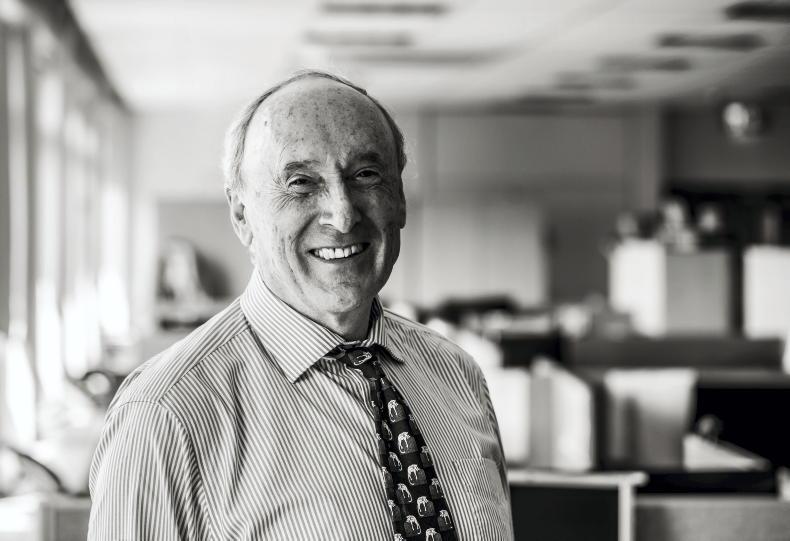
SHARING OPTIONS